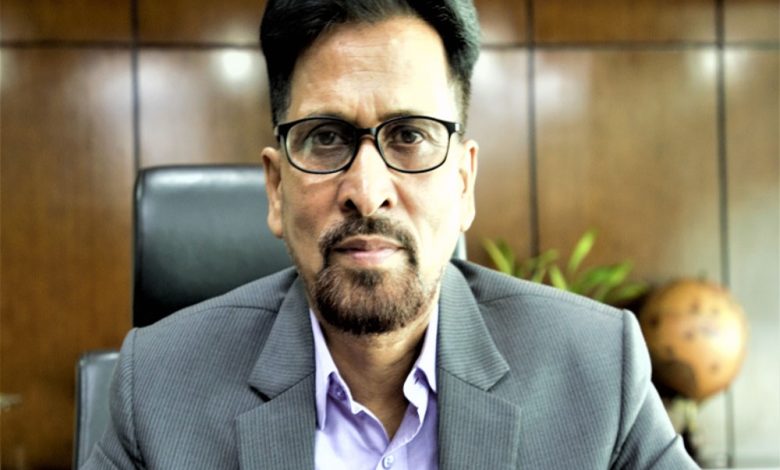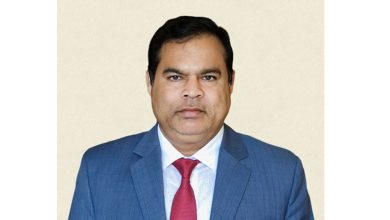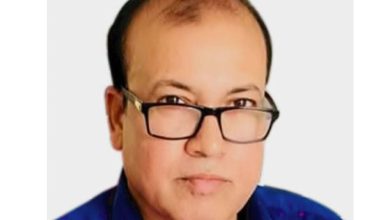Microfinance must innovate boldly to deliver inclusive growth: GUK executive director


Holiday Post Report: We’re dealing with a lot, honestly. High interest rates from banks are a huge hurdle. They make it tough for us to serve the vulnerable properly. Another big one is the lack of a Credit Information Bureau (CIB) for MFIs. Without it, it’s hard to track if borrowers are taking multiple loans, and that drives over-indebtedness. Plus, many MFIs struggle with weak infrastructure, poor digital literacy, and expensive funding. Hiring and keeping skilled staff in remote areas. Natural disasters also hit our clients hard and affect repayment. At GUK, we’re trying to tackle these through training, digitization, and community lending. But real, lasting solutions need support from regulators, funders, and MFIs together. said, Alamgir Hossain: Executive Director of Gram Unnayan Karma (GUK), who a leading voice in Bangladesh’s microfinance sector, driving innovation, inclusion, and resilience for marginalized communities across the country. Recently he talk to about with Holiday Post globally microfinance various points.
Holiday Post: How are current government policies affecting your operations?
Alamgir Hossain: Government regulations have helped build discipline and credibility for MFIs, no doubt. Regular meetings chaired by the DCs are improving transparency. But honestly, policies could be more supportive. Small and medium MFIs in remote areas still find it hard to access low-cost funds.
Regulations have strengthened the base, but to thrive, we need more flexibility and inclusive policy support from the top.
Holiday Post: What policy reforms would make the biggest difference?
Alamgir Hossain: We need a separate CIB just for MFIs. That’s critical. Also, compliance requirements should be simpler for small institutions. Access to low-cost financing has to improve if we want to expand properly. Support for digital transformation is a must. And on top of all that, policies must back climate-resilient products and public-private partnerships targeting women, youth, and social protection. MFIs aren’t just lenders anymore—we can be powerful agents of inclusive growth if the environment is right.
Holiday Post: How can microfinance help Bangladesh hit its 2041 SDG goals?
Alamgir Hossain: It’s simple. Microfinance reaches people nobody else does. To fight poverty and reduce inequality, we must serve ultra-poor families, women-headed households, minorities, and people with disabilities. Youth is another big opportunity. With entrepreneurship loans and skills programs, we can drive job creation and gender equality. Climate change-We feel it every day. We must scale products like emergency loans and crop insurance. Digital inclusion is key too, but it must be done with care, especially for rural communities. Health, education, clean water—finance needs to walk hand-in-hand with these. If we stay focused and work together, microfinance can directly power Bangladesh’s SDG journey.
Holiday Post: What innovations do MFIs need to stay relevant?
Alamgir Hossain: We must innovate with empathy and urgency. First, digital transformation—but done in a way that doesn’t overwhelm clients. We’re doing digital literacy at group meetings and partnering with fintechs for low-literacy solutions. Second, green microfinance. Clients need products that help them survive and grow amid climate change. Third, we need integrated models—not just loans, but social services bundled together. Fourth, youth-centered financing. Rural youth need micro-franchise models, startup loans, mentoring. At the end of the day, trust is our foundation. And we keep that trust by listening, adapting, and leading real innovation.
Holiday Post: How is GUK integrating sustainability and responsible lending into its work?
Alamgir Hossain: At GUK, responsible lending is a core value, not just a guideline. We’re strengthening crisis preparedness after learning hard lessons from COVID. We’re deepening client protection through clear communication and fair pricing. We’re pushing green finance—supporting livelihoods that survive climate shocks. Strategic partnerships are crucial too. Without working with government, regulators, and the private sector, we can’t sustain growth. Digital tools like mobile banking and AI credit assessments are also part of our new strategy. For us, every loan is more than money—it’s a commitment to lift lives responsibly.
Holiday Post: What’s the long-term vision for microfinance in Bangladesh?
Alamgir Hossain: We have to think bigger. Expand and diversify financial services, invest heavily in digital, and focus more on client protection and green finance. Strengthen internal capacity—especially human resources. Partner smarter, engage more in policymaking, and always measure our impact openly. Sustainability isn’t just financial—it’s about client empowerment, dignity, and resilience. We want microfinance to stand tall as a pillar of Bangladesh’s prosperity by 2041.
Holiday Post: What advice would you give to other microfinance leaders?
Alamgir Hossain: Stay rooted in your mission—but be fearless in changing your methods. Keep people at the center of everything. Be adaptive. Build ecosystems, not isolated bubbles. Invest deeply in your people. And never forget: true impact is the real bottom line.
Holiday Post: Could you share a few key moments that shaped your journey?
Alamgir Hossain: In the beginning, we had almost nothing—just a table, a few chairs, and a dream. One early client was a woman from a river erosion area. With a tiny loan, she built a milk business.A year later, her kids were healthy and studying. She said, “Bhai, eichhotto loan ta amar boro asha chhilo” – “This small loan was my big hope.” During COVID, when everything stopped, we kept going. We gave emergency loans, food, and medicine. Today, thousands of women, youth, and families are transforming their lives through GUK. The story of GUK is one of trust, struggle, and shared growth—and microfinance remains one of our strongest tools to build a fairer Bangladesh.





